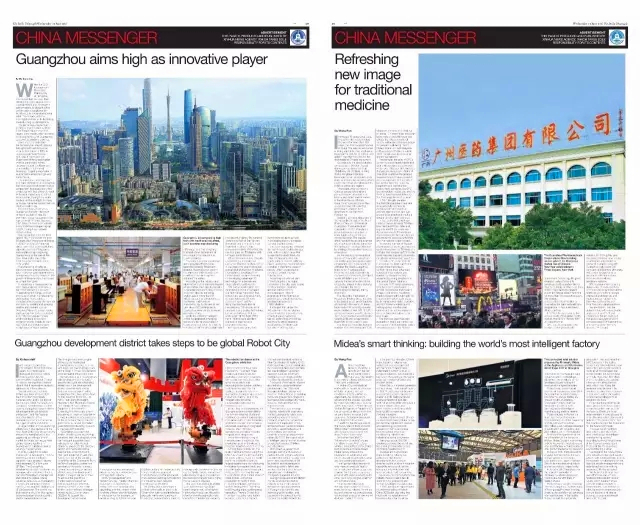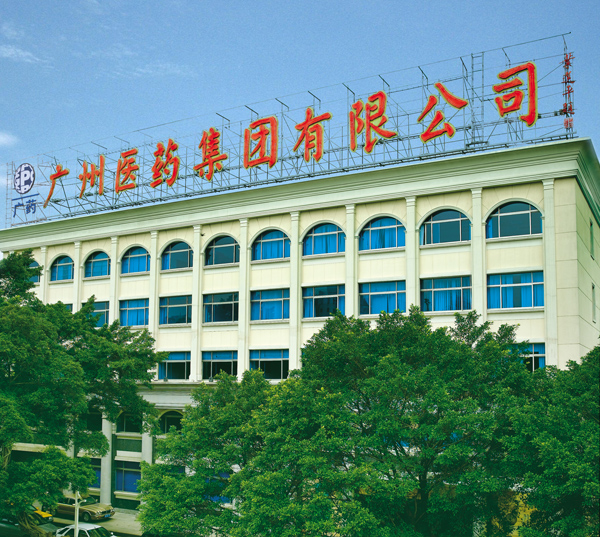The Daily Telegraph presents GPHL's new concept for traditional medicine
2017-11-02 17:22:19 GPHL GPHL
On June 14, 2017, The Daily Telegraph publishes an article titled “Refreshing new image for traditional medicine”, presenting if TCM is China’s answer to the needs in the global health market, then GPHL’s “Trendy TCM” will take it further.

The article is as follow:
In the past ten years, Coca Cola, a carbonated beverage sweeping the world for over 100 years, has taken on a powerful rival in China, Wanglaoji Herbal Tea, a botanical beverage famous for its red pop can and golden logo favored by Chinese consumers.
According to the latest statistics, the annual sales of the functional drink have reached over 20 billion yuan (2.9 billion USD), ranking first in the global botanical beverage market, on account of its massive global sales network, which covers more than 6 million outlets in some 60 countries and regions. “Wanglaoji, the only Chinese beverage brand on par with Coca Cola in terms of history, reputation and influence, is therefore the real China’s Coca Cola,” said Al Ries, a world-renowned marketing professional and “Father of Positioning.”
Standing in the headquarters of Wanglaoji by the side of the Pearl River, Li Chuyuan, chairman of Guangzhou Pharmaceuticals Corporation (GPC), Wanglaoji’s parent company, deemed its remarkable achievement as a strong message. The popular drink, however, is merely one example of the achievements resulted from the “going-out” strategy adopted by leading Chinese pharmaceutical enterprises. As China’s top pharmaceutical group and Guangzhou’s second largest municipally-owned corporation, GPC owns nearly 30 affiliates, the listed Guangzhou Baiyunshan Pharmaceutical Holdings included. According to Guinness World Records, Wanglaoji, worth 108 billion yuan (15.9 billion USD) in brand value, is the herbal tea brand that enjoys the longest history globally; and Chenliji, is the oldest established pharmaceutical factory (since 1600). And the initiative Recycling Mechanism of Household Expired Drugs is identified as the largest public benefit activity of the kind in the world. All these have made GPC a family of world record holders. Over the 2011-15 period, GPC’s annual compound growth rate was 22 percent. The sales revenue was 87.8 billion yuan (12.9 billion USD) in 2016 and is expected to hit 100 billion yuan (14.7 billion USD) this year.

The force pushing sales higher originates from the treasure of Traditional Chinese Medicine (TCM), which has enjoyed a history of five millennia or more. Chinese herbal medicine, being natural and with fewer side effects, will become the best option for people’s wellbeing, Ferid Murad, a Nobel laureate in Physiology or Medicine, stated in 1998. The idea has been gaining greater acceptance on the globe.
For example, the sales of GPC’s Zishen Yutai Pills (for miscarriage prevention) nearly tripled last year and are expected to top 500 million yuan (73.5 million USD) this year. Li believes that people always come first as the greatest treasure. In recent years, the R&D work of the product has been enhanced, including the long-term and reproduction toxicity tests carried out by GPC and competent institutions and the findings ensued released on Toxicology Research journal. In 2014, the Pills became the first Chinese patent medicine having been through evidence-based research in assisted reproduction, and was proved effective in treatment upon multiple double-blind randomized trials.
In fact, as the Belt and Road Initiative moves forward, TCM has now reached 183 countries and regions and 86 Cooperation Agreements on TCM have been signed between China and foreign governments, regional authorities and international organizations. “A growing number of Western pharmaceutical giants are stepping up their investment in TCM industry in China. But to open up TCM to the world requires popularity in the society, even among young people,” said Li. “Trendy TCM,” as he refers to it, is the most needed health products for people, combining the most advanced science and technology and the marketing strategies widely accepted by the youth, as in the case of Zishen Yutai Pills.
To put a trendy hue on the TCM map, GPC has been striving to make TCM more internationalized, modernized and popular in a scientific way. Greater efforts have been made to keep traditional medicine in accord with modern technology by bringing in two Nobel laureates and ten Chinese academicians and setting up two postdoctoral centers and six national R&D platforms for new drugs. The past two years has seen the research on Wanglaoji Herbal Tea and Baiyunshan Naoxinqing Tablets (for strengthening the heart and brain) won the second prize of National Science and Technology Progress Awards. Huatuo Zaizao Pills (produced by Baiyunshan Qixing Pharmaceuticals, another subsidiary of GPC) have been the biggest exporter in Chinese patent medicine for over 10 years in a row. The product is also on the lists of medicines covered by national healthcare program in Russia and many other countries. If TCM is China’s answer to the needs in the global health market, then GPC’s “Trendy TCM” will take it further.
While making TCM more popular, GPC has also engaged in the frontiers of global health industry. On May 20th this year, the group signed an international collaboration agreement on stem cell research along with Guangzhou Saliai Stem Cell Company and Stanford University, with a view to expanding presence in the fields of new vaccines, stem cell and precision medicine. As of now, GPC has been moving up the global value chain by reaching consensus on cooperation in health industry with renowned international enterprises and institutions, such as Siemens, Time Medical Systems and Teva Pharmaceutical Industries.
“We are hopeful that the global market will have more understanding of TCM and Chinese healthcare ideas, and that people around the world can experience TCM’s preventive and healing power of diseases,” Li remarked.

